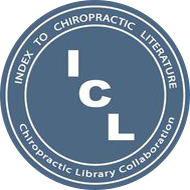| Abstract/Notes |
The accumulation of Advanced Glycation End products (AGEs) in the human body is an unavoidable part of the aging process in humans. Extensive research has linked AGEs to chronic disease and as a likely player in many of the changes seen during aging. AGEs are formed both endogenously and exogenously. AGEs accumulate in all tissues and body fluids and interact through a specific signal transduction receptor on the cell called a RAGE (Receptor for Advanced Glycation End products). Pathologically, AGEs produce reactive oxygen species (ROS), reactive nitrogen species (RNS), oxidative stress, and inflammation. This leads to protein alterations causing both functional and structural changes, cellular dysfunction, apoptosis, and multiple tissue and organ injuries. High levels of AGEs in the diet as well as in tissues and circulation are pathogenic for a wide range of diseases. Little is known about AGEs within the context of nutritional intervention however, formation of both endogenous and exogenous AGEs can be targeted. There is a general lack of any robust clinical recommendations in practice. An overview of AGEs, pathological influence, and nutritional strategies for reduction of AGEs are discussed.
This abstract is reproduced with the permission of the publisher. Article only available in print.
|
